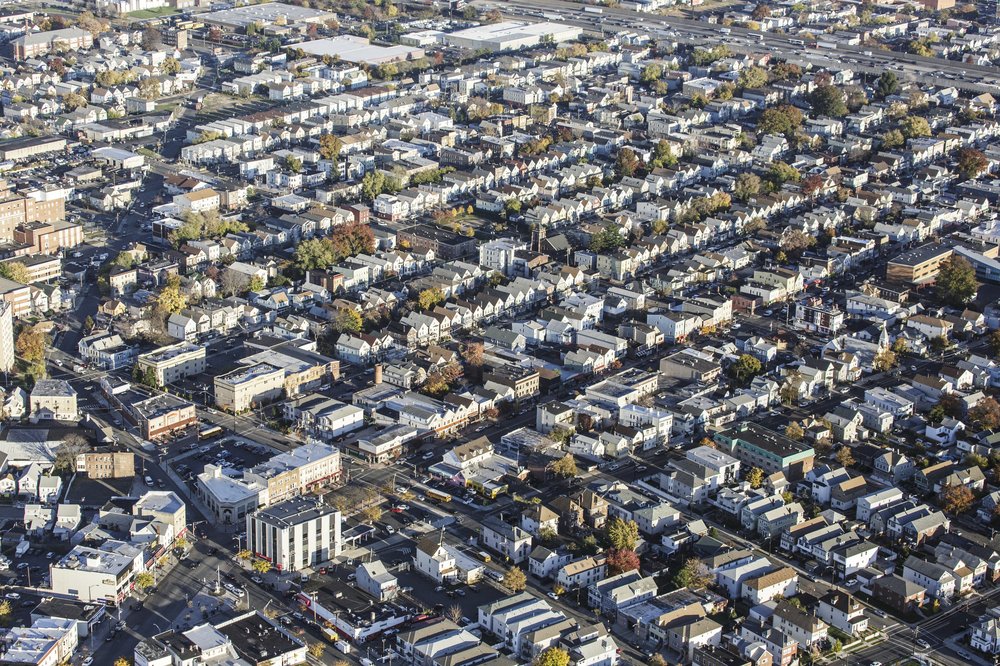A how-to guide for finding affordable housing in New Jersey
Nov. 12, 2024, 6:01 a.m.
For the affordable units that do exist in New Jersey, demand is vastly outpacing supply.

As the price to rent or purchase a home in New Jersey continues to skyrocket, finding an affordable home has become increasingly challenging.
State officials claim the state is short more than 200,000 affordable units to meet the need for housing. And the common belief is that this number will only go up as challenges with increasing the housing stock persist. For the affordable units that do exist in New Jersey, demand is vastly outpacing supply. Sometimes tens of thousands of people apply to live in just a few units. This can lead to yearslong waiting lists for families in need of a low-priced living situation.
Despite these hurdles, there are solutions out there for renters and home buyers seeking affordable housing in New Jersey.
To help Gothamist readers navigate the process, here’s a helpful guide to what you need to know:
What makes NJ’s approach to housing unique?
The good news up front for New Jerseyans and would-be Garden Staters is that the state has one of the strictest mandates in the country to make affordable housing available in each and every community.
The mandate stems from a 1975 state Supreme Court decision known as the Mount Laurel doctrine, which says every community in New Jersey must contribute its “fair share” of affordable housing in their city or town.
Under the Mount Laurel system, the state has begun production on 50,000 affordable housing units in the last 10 years alone, according to New Jersey’s Fair Share Housing Center. Of those, more than 21,000 are finished, and at least 2,000 more will be move-in ready each year, the nonprofit said.
And just last month New Jersey state officials released a plan aiming to develop more than 150,000 affordable homes across the state over the next 10 years during the next round of Mount Laurel mandated development.
I’m looking for an affordable home. Who can I contact?
The process can seem daunting or cumbersome at first, but a host of resources is available, including online tools and organizations that offer services to help you find affordable housing in New Jersey.
Matthew Hersh, director of policy and advocacy for Housing and Community Development Network of New Jersey, said when people ask what’s the first thing they should do he directs them to two places online to see what’s out there and available: Affordable Homes New Jersey and the NJ Housing Resource Center. At these sites, prospective renters and home buyers can search what’s available by county or specific town. The sites also provide information and links for users to apply for housing and join waiting lists for developments.
Additionally, there are services designed to help people who need affordable housing with additional support for seniors, disability services or addiction counseling.
Diane Riley, executive director for Supportive Housing Association of NJ, said her organization has created a network of partners to help those who need additional services.
Hersh says the application process can be “difficult to navigate.” Applicants will be asked to provide detailed information on who will be living in the home plus a comprehensive list of income and tax documents to ensure they qualify.
However, there are also several organizations set up in the state to help people navigate the process. Sharon Clark, executive director for the Central Jersey Housing Resource Center, said her organization will provide a guide to what homes are available, and also do hands-on work with applicants like helping them figure out what their credit score is if they don’t know it.
“Everything we do is free,” Clark added.
Who qualifies? More people than you might think.
A common misconception is that when we say affordable housing we’re only talking about housing for the poorest of the poor. That is not true.
In New Jersey, under the Mount Laurel doctrine, each city and town is mandated to develop housing priced for a range of people from low to medium income.
And while each town will have housing specifically earmarked for the lowest-income people, each will also set aside housing for “medium-income” people who make up to 80% of the median income for their area. For example, in Bergen, Hudson, Passaic, and Sussex counties, an individual can have an annual income of about $84,000 and a family of four can be making about $120,000.
“People think these are units for people that are on welfare, and it's just totally not true,” said Sharon Clark.
“They're our school teachers. They're our government workers. They're a whole wealth of people,” Clark said.
NJ town first to agree to 1,500-plus new affordable housing units over next decade Hoboken residents preserve rent control rules in landslide vote